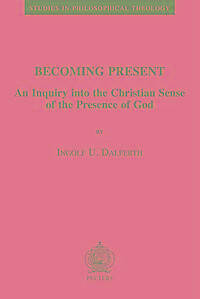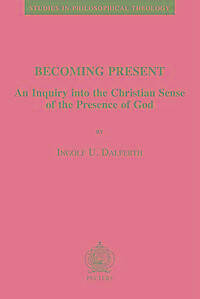
- Retrait gratuit dans votre magasin Club
- 7.000.000 titres dans notre catalogue
- Payer en toute sécurité
- Toujours un magasin près de chez vous
- Retrait gratuit dans votre magasin Club
- 7.000.0000 titres dans notre catalogue
- Payer en toute sécurité
- Toujours un magasin près de chez vous
39,00 €
+ 78 points
Description
Safeguarding the distinction between God and world has always been a basic interest of negative theology. But sometimes it has overemphasized divine transcendence in a way that made it difficult to account for the sense of God's present activity and experienced actuality. Deconstructivist criticisms of the Western metaphysics of presence have made this even more difficult to conceive. On the other hand, there has been a widespread attempt in recent years to base all theology on (religious) experience; the Christian church celebrates God's presence in its central sacraments of baptism and Eucharist; and recent process thought has re-conceptualised God's presence in panentheistic terms. This is the background against which this book outlines a theology of the Christian sense of the presence of God. The first chapter traces the rise and fall of rational religion in Modernity and argues that we should replace philosophical theism not by a unspecified religious sense of the whole but by a specific sense of the presence of God. The second chapter analyses the notion of divine presence and outlines different ways of understanding the real presence of God. The third chapter discusses the problem of whether and how God's presence can be discerned - given the fact that there is no presence of God that is not tinged by God's absence. Chapter four distinguishes various modes of divine presence with their corresponding modes of (human) apprehension. Chapter five takes up the charge that presence is an impossibility in a critical discussion of the debate between Derrida and Marion about the (im)possibility of gift. Chapter six asks how God's presence is conceived and communicated, looking in particular to music as a means of representing and communicating the awareness of God's presence. The final chapter outlines how the sense of the presence of God can be presented and defended in a world of many religions and cultures with their often conflicting religious convictions and representations.
Spécifications
Parties prenantes
- Auteur(s) :
- Editeur:
Contenu
- Nombre de pages :
- 291
- Langue:
- Anglais
- Collection :
Caractéristiques
- EAN:
- 9789042917279
- Date de parution :
- 31-01-06
- Format:
- Livre broché
- Format numérique:
- Trade paperback (VS)
- Dimensions :
- 162 mm x 241 mm
- Poids :
- 508 g

Les avis
Nous publions uniquement les avis qui respectent les conditions requises. Consultez nos conditions pour les avis.






